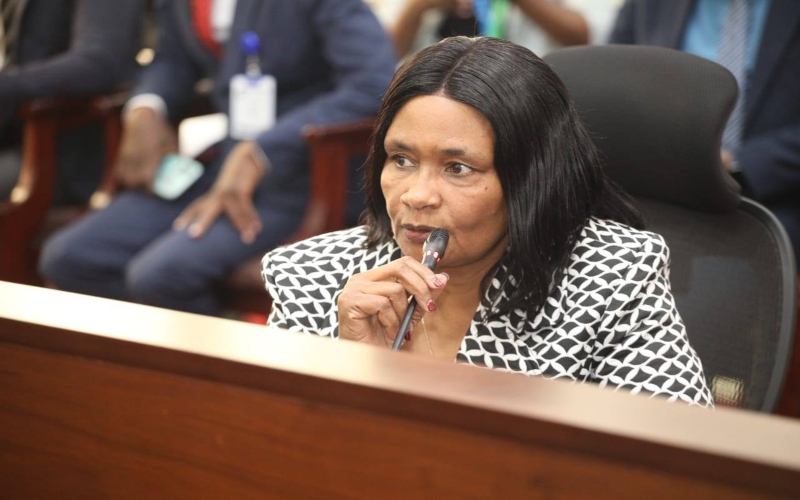Major global emitters off track, no country strong enough to meet climate targets - report

As delegates negotiate new climate commitments at COP30, the Index’s findings signal an urgent need for stronger political will and accelerated implementation.
None of the world’s largest emitting countries are strongly compliant with the 2015 Paris Agreement goals and are therefore off track in limiting global warming to below 2°C.
This, according to the latest Climate Change Performance Index (CCPI) report released at COP30 in Brazil, paints a concerning picture of stalled progress among major polluting economies.
More To Read
- Nyeri climate change activist Truphena Muthoni attempts 72-hour tree-hugging record
- UN’s Guterres vows to push for Palestine two-state solution, says he will ‘not shut up’
- Green economy now second-fastest global growth frontier, value hits Sh646.4 trillion - report
- Supporting Africa’s drylands: Insights from the pastoralists who call them home
- Experts at COP30 launch Sh39 billion plan to shield hospitals from climate threats
- Landmark French ruling against TotalEnergies sets stage for major African climate lawsuits
The CCPI, designed to enhance transparency in national and international climate politics, evaluates the performance of 63 countries and the EU, collectively responsible for over 90 per cent of global greenhouse gas emissions.
Using a standardised framework across four categories, Greenhouse Gas (GHG) emissions, renewable energy, energy use and climate policy, the Index shows that no nation is performing strongly enough across all the areas.
As a result, none of the surveyed countries achieved a “very high” overall rating, leaving this year’s Index top three spots unfilled for another year.
Denmark remains the highest-ranked country at fourth place but still falls short of the top performance tier.
Within the EU, mixed progress saw the bloc fall three positions to 20th overall, earning only a “medium” rating.
The picture is even more alarming for the G20, whose members account for more than 75 per cent of global emissions.
The United Kingdom (UK) is the only G20 nation to achieve a high ranking, while ten major economies fall into the “very low” category.
Russia (64th), the United States (65th), and Saudi Arabia (67th) remain the worst performers.
As delegates negotiate new climate commitments at COP30, the Index’s findings signal an urgent need for stronger political will and accelerated implementation.
With even the most advanced countries falling short of Paris-aligned trajectories, the report underscores the widening gap between global climate ambition and the action required to meet it.
Highlighting the emissions performance, the report says GHG emissions per capita, the average emissions per person in a country or globally, have only grown marginally since 2011.
Absolute emissions show a similar pattern.
“While total GHG emissions have continued to rise since 2005, the rate of increase has slowed significantly,” the report reads.
“In 2005–2015, global emissions grew by around 18 per cent, though since the 2015 adoption of the Paris Agreement, the increase was about 10 per cent through 2024.”
Overall, it reckons that GHG emissions are still rising, but at a slower pace since Paris.
Nevertheless, the report notes that renewable energy has also been on the rise, expanding almost twice as quickly in 2015–2024 as in the decade before Paris.
It, however, warns that this trend should not be misunderstood, despite the progress it indicates.
“Emissions are still rising and every additional tonne of CO₂, CH₄, and N₂O brings the world closer to critical tipping points.”
Top Stories Today













































